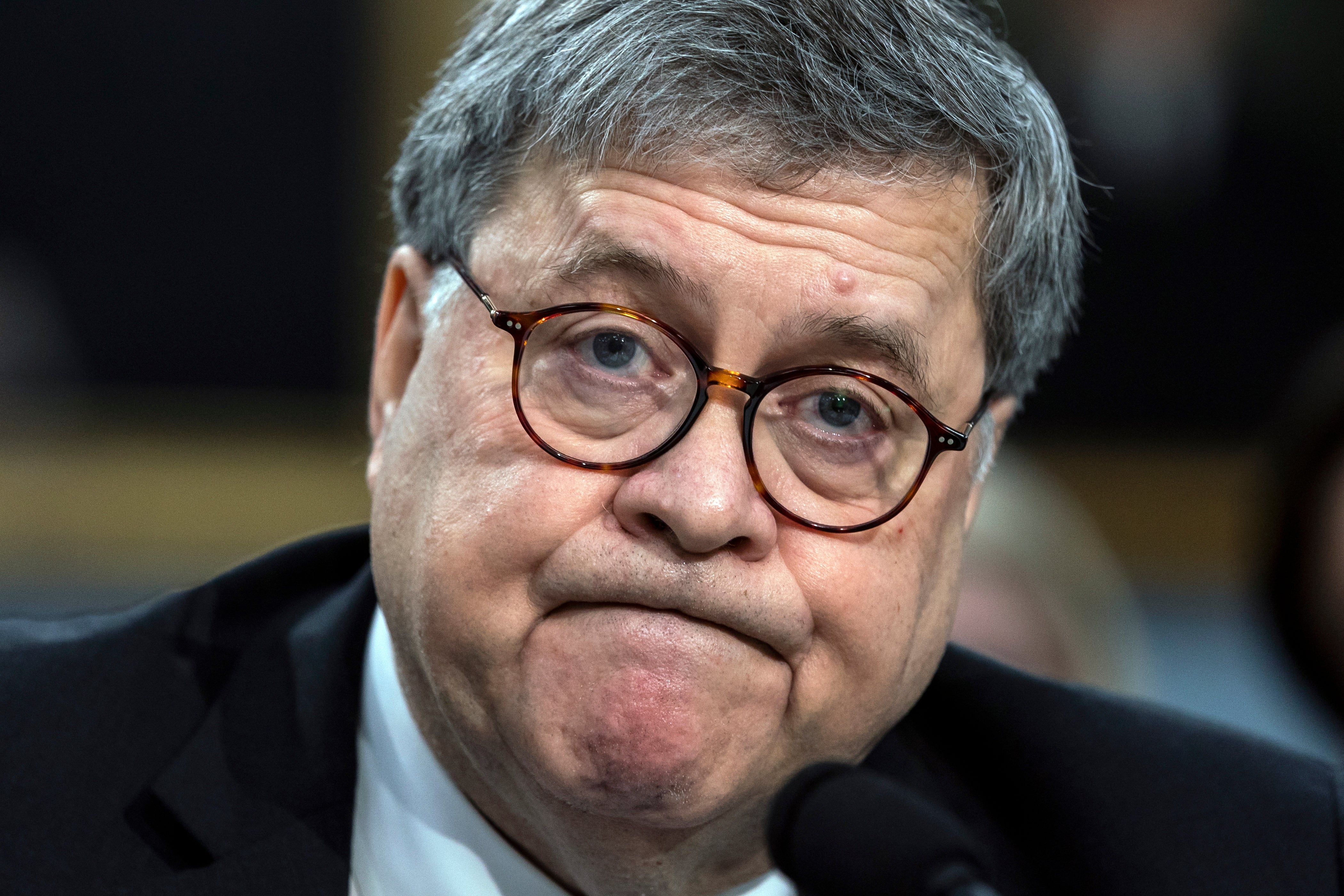
The Justice Department has been ordered to release a secret memo in which it discussed whether Donald Trump had obstructed Robert Mueller’s investigation into Russian interference in the 2016 election.
The decision by a federal appeals court found that former Attorney General Bill Barr had improperly withheld portions of the March 2019 memo which he said he relied on to determine if Mr Trump should face prosecution.
The memo has been at the centre of a legal battle for more than a year after the advocacy group Citizens for Responsibility and Ethics in Washington (CREW) fought for its release in a public records lawsuit.
In May 2021, US District Judge Amy Berman Jackson ordered the entirety of the memo be released and accused Mr Barr and the Justice Department of misleading the court and the public.
The Biden Administration appealed that ruling, and on Friday a three-person appeals panel found the government could not stop release under the Freedom of Information Act.
Citizens for Ethics celebrated the decision and promised to release the unredacted memo.
“ We won,” it tweeted on Friday.
“And you better believe we’re going to make it public.”

It accused Republicans of hypocrisy over their calls for the DOJ to release all of its documents related to the search of Mar-a-Lago.
Mr Barr had initially argued that the 2019 memo should be shielded from the public as it involved the private deliberations of its lawyers before a decision had been formalised.
Mr Barr used the memo to conclude that Mr Trump had not obstructed a special counsel probe headed by Mr Mueller into whether the Trump campaign had colluded with Russia.
He released a controversial summary of the report, announced Mr Trump had been exonerated, and refused to release the full report until weeks later amid howls of outrage from Democrats.
A year later in March 2020, a judge issued a blistering decision of Mr Barr’s actions, saying he had had made “misleading public statements” to spin the investigation’s findings in favour of the former president, according to the Associated Press.
The decision on Friday by the DC Circuit appeals court noted that Mr Mueller had declined to accuse or exonerate Mr Trump of the obstruction charge, and had left the decision to Mr Barr.
Sitting presidents are considered to be exempt from criminal charges on the grounds that prosecuting them would undermine their ability to perform their duties.
But given that he was no longer in office, there was no justification for continuing to keep the memo secret, the court found.







